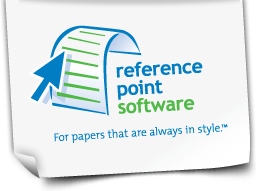How to Write an Interesting Biography for College
A biography carries with it the essentials of any good story. There can be drama, conflict, love, hate, and adventure. All of the things necessary to tell a compelling story can be found in peopleΓÇÖs lives and the events that happen around them. However, your paper wonΓÇÖt earn you the best grade if you j state the facts. If youΓÇÖre struggling to write an interesting and informative biography, here are five suggestions to help write a solid paper.
1. Choose an interesting subject.
If youΓÇÖre writing a biography for college, you probably have the option of choosing your subject. Is your subject a person that the reader may know, such as an actor, politician, or another public figure, or someone closer to home, like a relative or friend? If the reader doesnΓÇÖt know the person, ask yourself if there is something compelling about the subjectΓÇÖs life that is of particular interest that you can expand upon. If not, choose another person as the subject for your paper.
2. Interview or research your subject.
If you pick a person that is alive and approachable, see if you can gain access to interview them. However, if your subject is dead or is not available for an interview, you will have to get the necessary information by performing research. Gather the basic facts, such as date and place of birth, education, family, achievements, and place and date of death, if applicable. Also, find out about any major events that took place in the time of your subject and use them as backdrops to more fully draw out the character of your subject. Look for any possible impact that your subject had on society and any historical significance. Make sure that when you reference other materials in a biography for college, you use the proper citation style.
3. Begin your biography in an interesting way.
Facts by themselves are often dry and dull. Just because youΓÇÖre writing a biography for college doesnΓÇÖt mean you should just state the facts. Instead, weave them into a narrative story or put them in other interesting ways. Most people connect with a biography first and foremost on an emotional level. Remember, your opening is what captures the readerΓÇÖs attention and sets the tone for your paper. You may choose to include a little known fact or a fascinating event at the beginning. If you do, make sure it is relevant and that it leads into the body of your biography.
4. Select the proper tone.
Before you begin to write, think about your subjectΓÇÖs life. Is it a tale of tragedy or triumph? Was your subjectΓÇÖs life inspirational or gritty and dark? You want to create an image in your readerΓÇÖs mind that matches the prevailing mood of their life. Use a tone that matches this appropriately.
5. Break down the components of your subjectΓÇÖs life.
Break down your subjectΓÇÖs life story into three or four parts or time periods. Once youΓÇÖve done this, you can find what could include other interesting subplots in the story. Look for a particular arc in the story. You could even select just a part of the subjectΓÇÖs life if that is a defining moment in their evolution. For instance, if your subject was a professional athlete or was involved in a dangerous mission during a war, you may want to write just about that time in their life.
When you refer to works by other authors in your biography, itΓÇÖs essential that you cite them accurately so your reader can validate the references. The citation style will vary based upon the writing format given to you by your college professor, whether APA, MLA, or another. Your cited references will add credibility and relevance to the story. If you are unsure of the proper format for your citation style, you can use formatting software for accuracy.
For more information about APA or MLA formats, contact us today.
David Plaut is the founder of Reference Point Software (RPS). RPS offers a complete suite of easy-to-use formatting template products featuring MLA and APA style templates, freeing up time to focus on substance while ensuring formatting accuracy. 
Reference Point Software is not associated with, endorsed by, or affiliated with the American Psychological Association (APA) or with the Modern Language Association (MLA).
